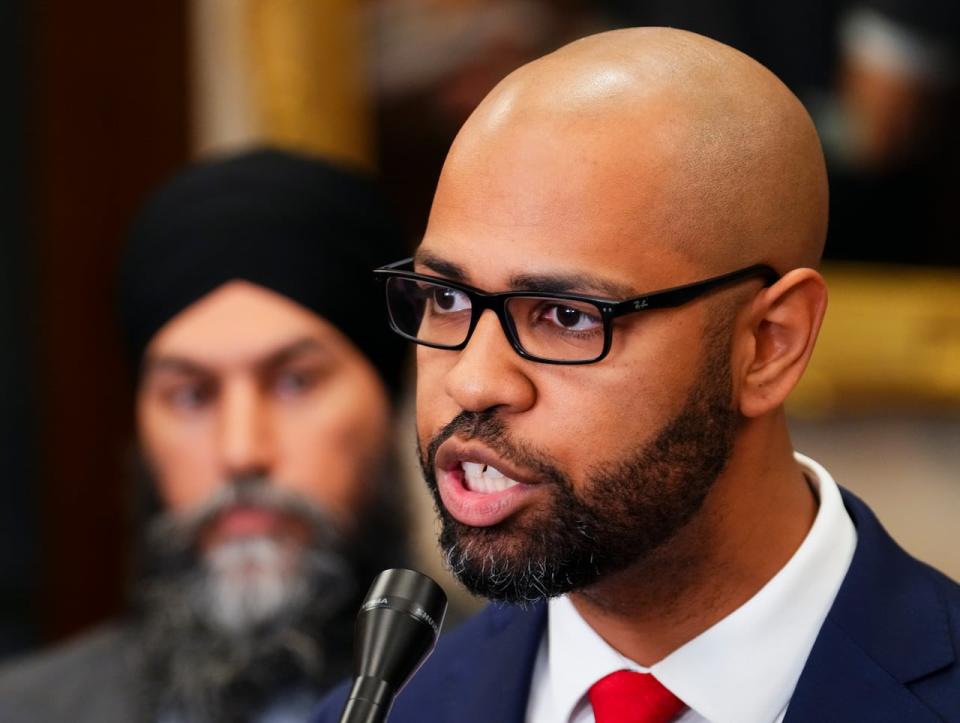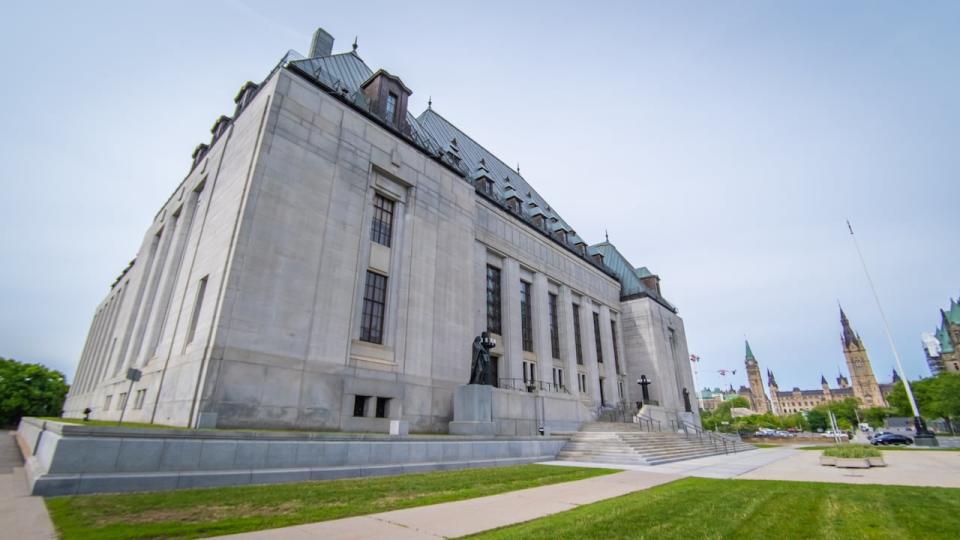Muslim advocacy group blasts Quebec secularism law in front of Commons committee
One of Canada's most prominent Muslim advocacy groups used part of its time in front of a Commons committee studying Islamophobia Thursday to attack a controversial Quebec law that bars most public sector employees from wearing religious clothing or symbols on the job.
"The Quebec government legislates discrimination since 2019," Stephen Brown, chief executive officer of the National Council of Canadian Muslims, told members of the Commons justice committee.
"The impacts of Law 21 have caused mental torment for countless Muslim women who must now choose between their faith and life in Quebec, a place where many consider home."

Questioned by Bloc Québécois MP Rhéal Fortin — whose party supports the law — Brown said "all forms of hatred are unacceptable, especially hatred encouraged by a government.
"Law 21 is a form of hatred that literally targets minorities and seeks to remove citizens' rights."
Fortin repeated what the Quebec government has said about the law, which has considerable polling support in the province — that the ban on public servants wearing hijabs or other visibly religious clothing on the job is meant to clarify the separation of church and state.
"In the same law," Brown shot back, "it's said that the state has to be neutral but crosses on schools are all right, crosses in hospitals are all right, but that people have to be neutral. What exactly is a neutral person?"
He also pointed to an interview Quebec Premier François Legault gave Radio-Canada in 2019. In it, Legault defended the law in part by saying it placated extremist sentiments in the province.

The law has been upheld by the lower courts but likely will end up before the Supreme Court of Canada. Multiple groups, including the NCCM, have challenged the law.
The federal government has called the law discriminatory and has said it would seek status as an intervenor at the Supreme Court. The Legault government, meanwhile, has said it will use the notwithstanding clause to override the Charter of Rights and Freedoms and keep the law in place.
Anti-Muslim hatred on the rise
The committee also heard from NGOs and academics who have looked into anti-Muslim hatred.
Imran Ahmed, CEO of the Center for Countering Digital Hate, said MPs should look into the role played by social media algorithms in promoting hate online. Jasmin Zine, a sociology professor at Wilfrid Laurier University, said that Islamophobic messages have been amplified since the start of latest Israel-Hamas conflict.
The NCCM said reports of Islamophobic incidents at its own legal clinic jumped 1,300 per cent in the last quarter of 2023.
"Our communities are experiencing unprecedented levels of hate and violence, from every level of society, including but not limited to professionals losing their employment [and] receiving disciplinary actions after calling for a ceasefire in Gaza," Brown said.
He recommended the committee push MPs to unequivocally condemn Islamophobia and anti-Palestinian racism. He also urged them to adopt all of the recommendations from a recent Senate report on Islamophobia.
The committee heard earlier this week from loved ones of the Afzaal family. Four members of the family were struck down and killed by a truck driver in what was widely acknowledged as an Islamophobic attack in London, Ont. three years ago.
The MPs have also been studying antisemitism on Canadian university campuses.

 Yahoo News
Yahoo News 
